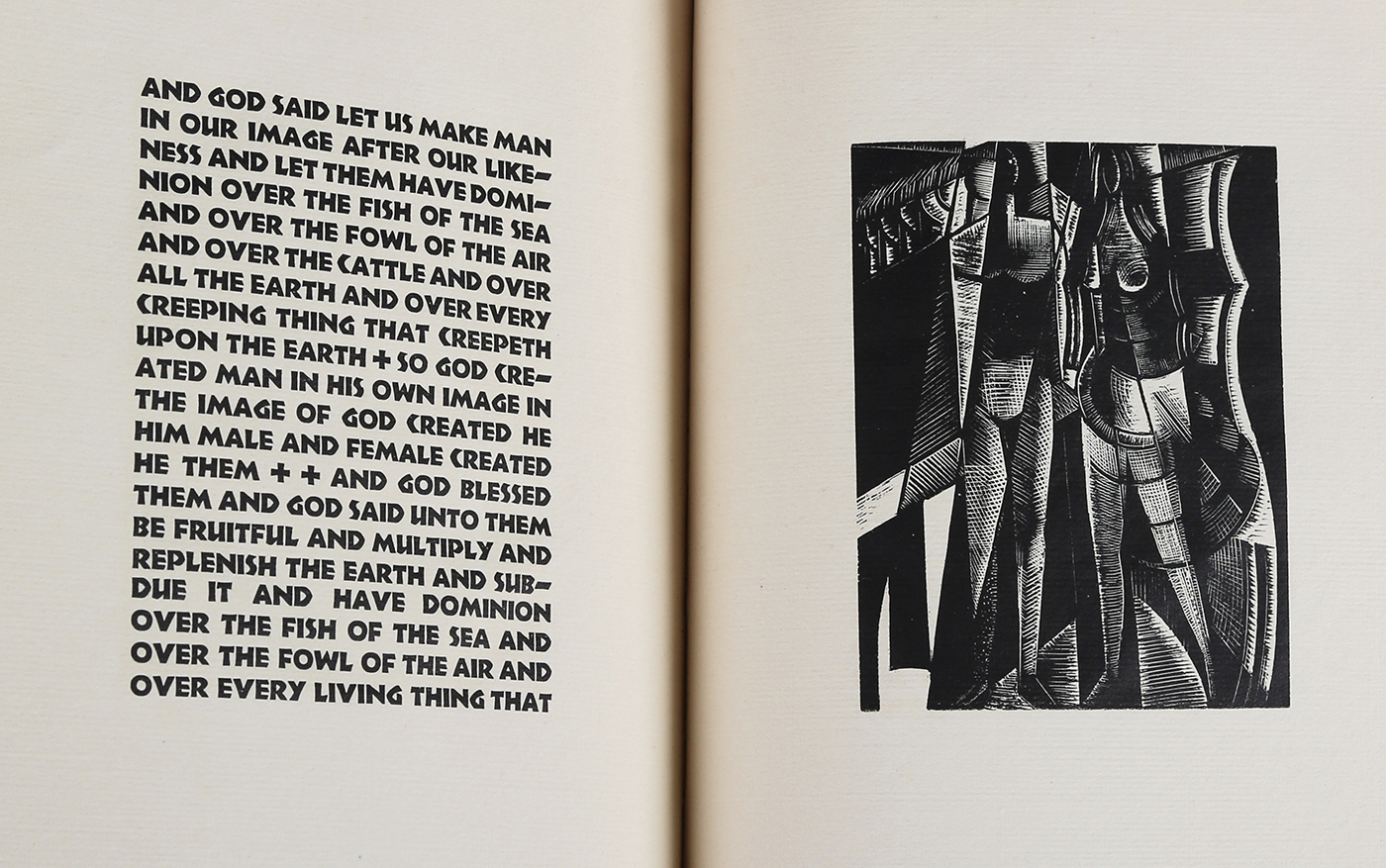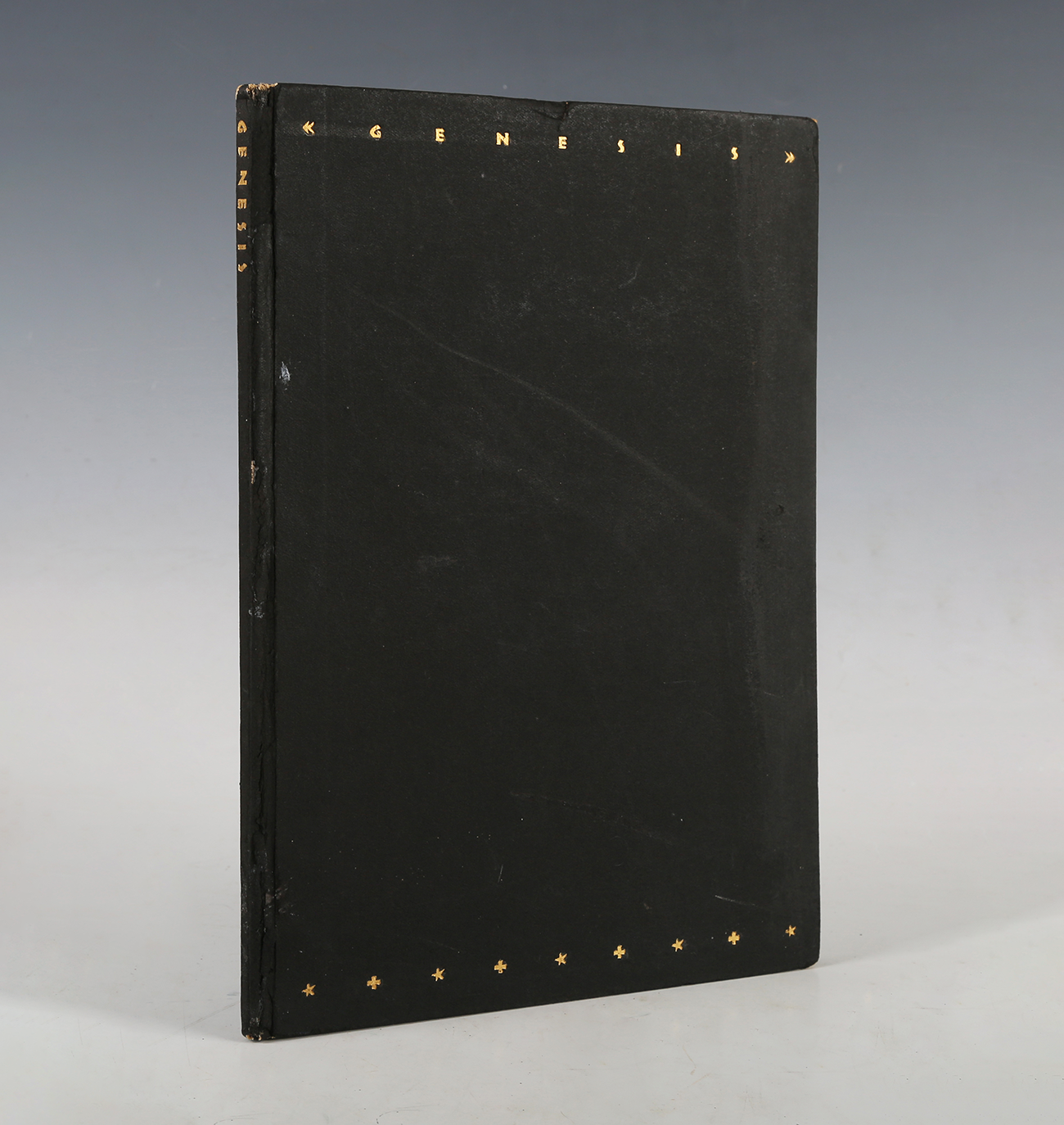
Private Press books published in the 20th century were often illustrated by leading British artists. Many of these are printed in signed limited editions like the volume Genesis illustrated by Paul Nash.
In the 20th century many artists rediscovered their role as artisan artists and designers, as well as painters and sculptors of fine art. One of the ways that they this expressed this was through making printed woodblock illustrations for fine books produced by Private Presses.
Paul Nash is often thought of as an essentially English artist but between the wars he also sought to champion the hope embodied in continental modernism defending Picasso and experimenting with abstraction before embracing Surrealism and founding Unit One with Ben Nicholson, Henry Moore, Barbara Hepworth and Ivon Hitchens.
He served as a soldier in the trenches of the Great War and became an important war artist on the Western Front between 1917 and 1918 and again during the Second World War.
In 1920, the Society of Wood Engravers was formed and Nash joined. The twelve stark monochromatic illustrations for Genesis illustrates Nash’s move towards modernism and semi-abstraction for a period. The influences of Vorticism and Cubism are apparent in the dynamic sense of movement and the fragmented space he creates in these images. The figures have an ethereal quality. This technique, combined with his unerring and poetic eye, seeds drama in our imaginations and allows us to glimpse something beyond our immediate perception of the world.

Genesis was produced for the Nonsuch Press by the Curwen Press in 1924 in a limited edition of 375 copies. The dramatic text is in Rudolf Koch’s Neuland type. This copy lacked its orange, paper dust jacket and despite some issues of condition it realised £800 in a Toovey’s specialist book sale.
Paul Nash exhibited at the important ‘Exhibition of the Work of English Post-Impressionists, Cubists and Others’, where his work was selected by Spencer Gore of the Camden Town Group. The exhibition was held at the Public Art Galleries in Brighton between 16th December 1913 and 14th January 1914. Nash also taught and championed two other artists noted in Sussex, Eric Ravilious and Edward Bawden, at the Royal College of Art in London.
I have long been of the opinion that Sussex stands out as an important centre for Modern British Artists working in the 20th century. Paul Nash’s original and influential work, and his connection with Sussex, makes him a favourite of mine.